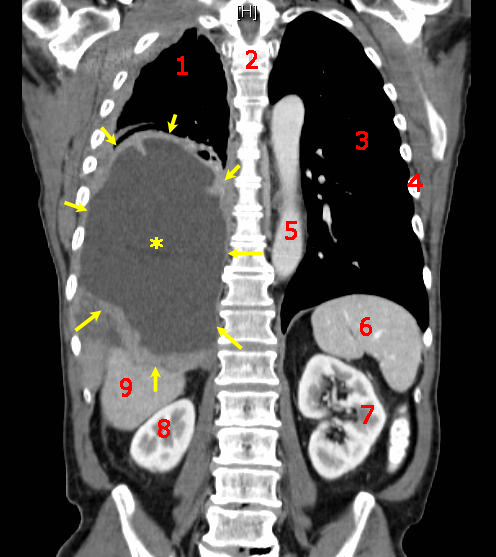Ultra-processed foods (UPFs) are industrially produced items derived from natural foods or synthesized compounds. They are engineered for profitability, convenience, and high palatability using additives like preservatives, colorings, and flavorings. Common production methods include moulding/extruding, hydrogenation, and frying. Although there is no standard definition, UPFs are generally recognized as heavily processed and distinct from minimally processed or traditionally prepared foods.
1911: Crisco introduced to the consumer market
In 1911, Crisco was developed as alternative to lard and introduced to the consumer market.
2006: The Omnivore's Dilemma referred to highly processed industrial food as 'edible food-like substances'
In 2006, Michael Pollan's book The Omnivore's Dilemma referred to highly processed industrial food as 'edible food-like substances'.
2009: Monteiro coins the term 'ultra-processed food'
In 2009, Carlos Augusto Monteiro coined the term 'ultra-processed food' in a commentary, citing Michael Pollan's work as an influence.
2009: Criticism of Monteiro's commentary
In 2009, a letter responding to Monteiro's commentary suggested that the definition 'lacks precision'.
2009: Term "ultra-processed food" gains prominence
In 2009, the term "ultra-processed food" gained prominence from a paper by Brazilian researchers as part of the Nova classification system.
2010: Nova classification for grouping unprocessed and processed foods developed
In 2010, Monteiro's team developed the Nova classification for grouping unprocessed and processed foods, refining it through successive publications.
2017: Criticism of the Nova classification
In 2017, following the publication of the Nova classification, some researchers questioned whether food processing should be considered a factor in nutrient intake.
2020: World Bank report mentions UPFs as potential contributor to obesity
In 2020, a report on obesity published by the World Bank mentions ultra-processed foods as a potential contributor.
2021: Survey identifies four 'defining themes' for classifying food processing levels
In 2021, a survey identified four 'defining themes' for classifying levels of food processing.
2022: Monteiro and Astrup debate the Nova classification
In 2022, Carlos Monteiro and Arne Astrup argued for and against the Nova classification in a series of three articles written in the style of an Oxford debate, nonetheless agreeing that food processing significantly affects diet quality and health outcomes and that further study is required.
2022: Study describes UPFs produced from high-yielding plant species encouraging monoculture
In 2022, Leite et al. describes that UPFs are generally produced from high-yielding plant species, encouraging monoculture and reducing agrobiodiversity.
2022: SACN reviewed scientific literature regarding UPF
In 2022, the Scientific Advisory Committee on Nutrition (SACN) reviewed scientific literature to consider whether the British government should adopt a position on ultra-processed food and recommended further research.
2023: Review indicates increased cancer risk with higher UPF consumption
A 2023 review indicated that people who consume 10% more ultra-processed foods have an increased risk of various cancers, including colorectal, breast, and pancreatic cancer.
2023: US and UK lead in UPF consumption
As of 2023, the United States and the United Kingdom lead the consumption rankings of Ultra-processed foods, with 58% and 57% of daily calories, respectively.
2023: Meta-analysis links UPF consumption to higher risk of type 2 diabetes
In 2023, a meta-analysis of 415,554 participants found that each 10% increase in ultra-processed food consumption led to a 12% higher risk for type 2 diabetes.
2023: Study finds inverse association between bread and cereals and diseases
In 2023, a study published in The Lancet found that bread and cereals are inversely associated with cancer and cardiometabolic diseases in the European population.
June 2024: SACN scheduled review on its position for June 2024
The Scientific Advisory Committee on Nutrition (SACN) scheduled a review on its position regarding ultra-processed food for June 2024.
2024: Meta-analysis finds increased risk of cardiovascular disease with UPF consumption
A 2024 meta-analysis found that participants with the highest consumption of UPF had a 17% increased risk of cardiovascular disease compared to those with the lowest consumption.
2024: Research into the effects of UPFs is rapidly evolving
As of 2024, research into the effects of Ultra-processed foods is rapidly evolving.
2024: Robinson and Johnstone cite similar study conducted in the US population.
In 2024, Robinson and Johnstone cite a similar study conducted in the US population.
2024: Meta-analysis associates UPF with negative health outcomes
In 2024, a meta-analysis published in The BMJ identified 32 studies that associated Ultra-processed food with negative health outcomes, noting possible heterogeneity among UPF subgroups.
2025: Meta-analysis finds increased risk of all-cause mortality with UPF consumption
A 2025 meta-analysis found that participants with the highest consumption of UPF had a 15% increased risk of all-cause mortality compared to those with the lowest consumption, also observing a 10% higher mortality risk with each 10% increment in UPF consumption.
Mentioned in this timeline
The United States of America is a federal republic located...

The World Bank is an international financial institution offering loans...

Cancer is a collective term for diseases characterized by abnormal...

Books are a means of storing information as text or...

A bank is a financial institution that plays a crucial...

Oxford is a city in Oxfordshire England It serves as...
Trending

6 months ago Paris Hilton's family stuns in matching outfits and enjoys Traverse City vacation.

2 months ago Marco Rubio's Venezuela Stance: War Sales Pitch and Social Media Influence Examined

Marc Anthony Marco Antonio Mu iz is a highly successful American singer and actor renowned as the best-selling salsa artist...

2 months ago Noah Kahan Responds Positively to 'Snooze Fest' Label for His Music.

3 months ago Patrick Dempsey stars in 'Memory of a Killer' thriller, premiering on Fox this January.

7 months ago Dana Perino Discusses Career, Advice, and Dream Dinner Guest in Interview
Popular

Thomas Douglas Homan is an American law enforcement officer who...

William Franklin Graham III commonly known as Franklin Graham is...

Jupiter is the fifth and largest planet from the Sun...

XXXTentacion born Jahseh Dwayne Ricardo Onfroy was a controversial yet...

Instagram is a photo and video-sharing social networking service owned...

Kristi Noem is an American politician who has served as...